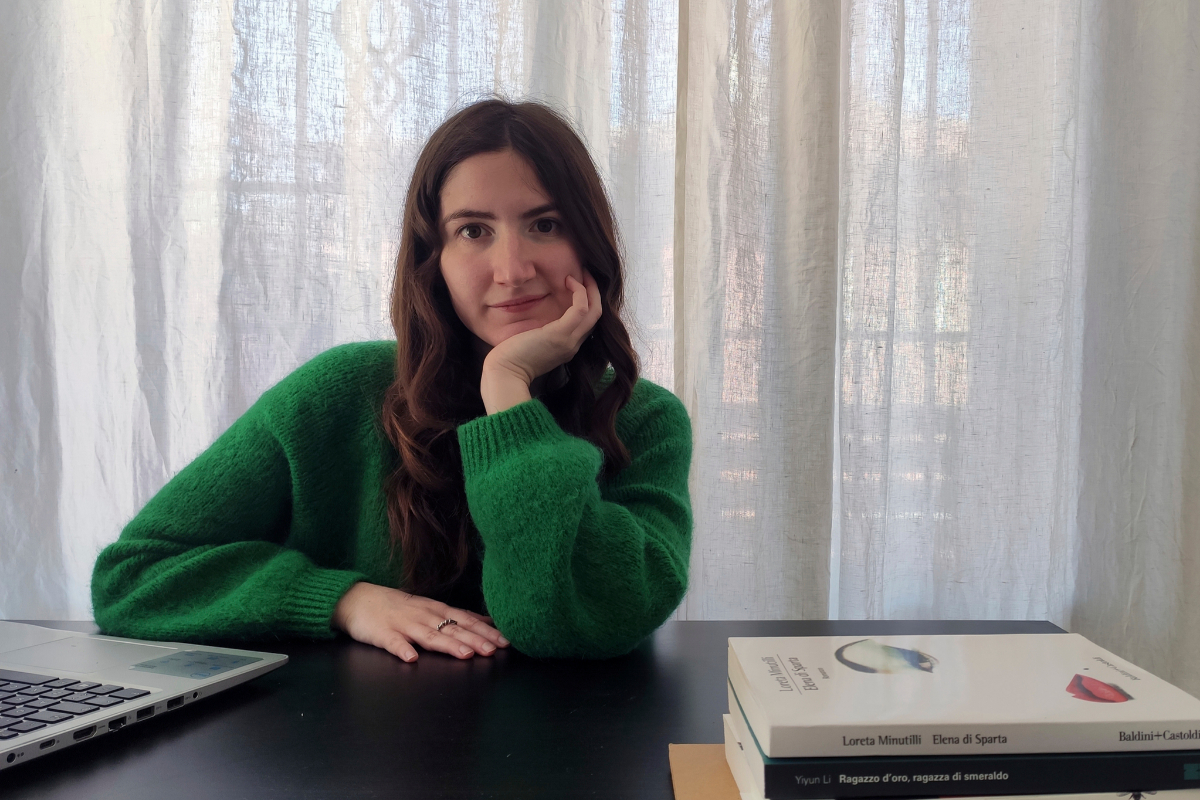- Hemeroteca.All interviews on the back cover of EL MUNDO
(Bari, Italy, 1995) Physics. Her first and applauded novel, Helena de Esparta (Editorial Alianza), is a contemporary version of The Iliad narrated through the voice of a fascinating Helena.
Why Helen of Sparta and not Helen of Troy, as we have always known her? We generally speak of Helen of Troy because we associate her with that war and with the enormous guilt of having abandoned her husband. I, however, wanted to tell her own story, before and after Troy, and the place where she really felt attached was Sparta, her homeland, where she was born, Helena is the cause of the war between Sparta and Troy that narrates 'The Iliad', and yet in that Homer play Helena is a dumb character. Why don't you have a voice and why did you want to give it to him? Helena has always been narrated as a guilty and negative character: nobody has wanted to tell her point of view because she is not an exemplary character, she has always been given the role of antagonist . I wanted to try to detach her from the concept of guilt and simply tell her story, without justifying or accusing her. For History, for all of us for 2,500 years, Helena has been guilty of the war between Troy and Sparta by escaping with Paris. Why has Paris never been held responsible? Because Paris is a man, and in the patriarchal mindset it is in his hunting nature to try to conquer prey like Helena. She, however, would have had to resist him to be a good woman.You present Helena not as guilty, but as a victim: an unhappy childhood, raped at a very young age by Theseus, object of male brutality, considered by all to be a woman beautiful but brainless when in fact he has it ... Why did he want to portray her like this? He did not want to portray Helena as a victim, he wanted to objectively tell her story: the events that I tell are part of the commonly accepted mythological heritage. Telling Helena's life as it has made her more human, and that was my goal. The Helena myth has existed for two and a half millennia. What tells that myth and which of its stereotypes remain until today? The myth of Helena seems to imply that beauty is always guilty: a prejudice that still exists today.Helena's great fault is being beautiful? Why is a beautiful woman still assumed today to be unintelligent, because perhaps it is feared that being beautiful and intelligent is a little too much. Stereotypes are always comfortable, they make the world easier to catalog. Ulises represents adventure, extreme curiosity, extraordinary experiences ... Her Helena is very similar in that sense. Could it be the female version of Ulysses? And why then is Ulysses perceived positively and Helena negatively? Yes, I wanted to suggest a parallelism between the two characters, forced to different narrations because of their differences. Ulysses can afford adventures and be considered a hero. However, in order to have experiences and grow, Helena must disobey morality and therefore become an antagonist. Helena was a modern woman? What about her in the women of today? It is modern the way in which Helena tries to destroy the vision that others have of her, to create her own history. Unfortunately, the way others look at it, judging and suspecting it, is also modern. If 'The Iliad' had been written by a woman, do you think the result would have been a work very different from Homer's? The female characters had more space, but I like to think that art is universal, and therefore would have been the same. In the face of a pandemic like this one of the coronavirus that we are unfortunately experiencing, how do you imagine Helena would react? I think she would have thought that, for once, being locked in the gyno would have had its positive side.According to the criteria of The Trust Project
Know more- culture
- history
- Greece
- Final interview
The final interview. Luis Manuel López Román: "The stereotype of the witch was created by the Romans"
The Paper Ornament Sphere: "The social conditions that determine fascism are still alive"
The Paper SphereThe musician who was inside Galdós

